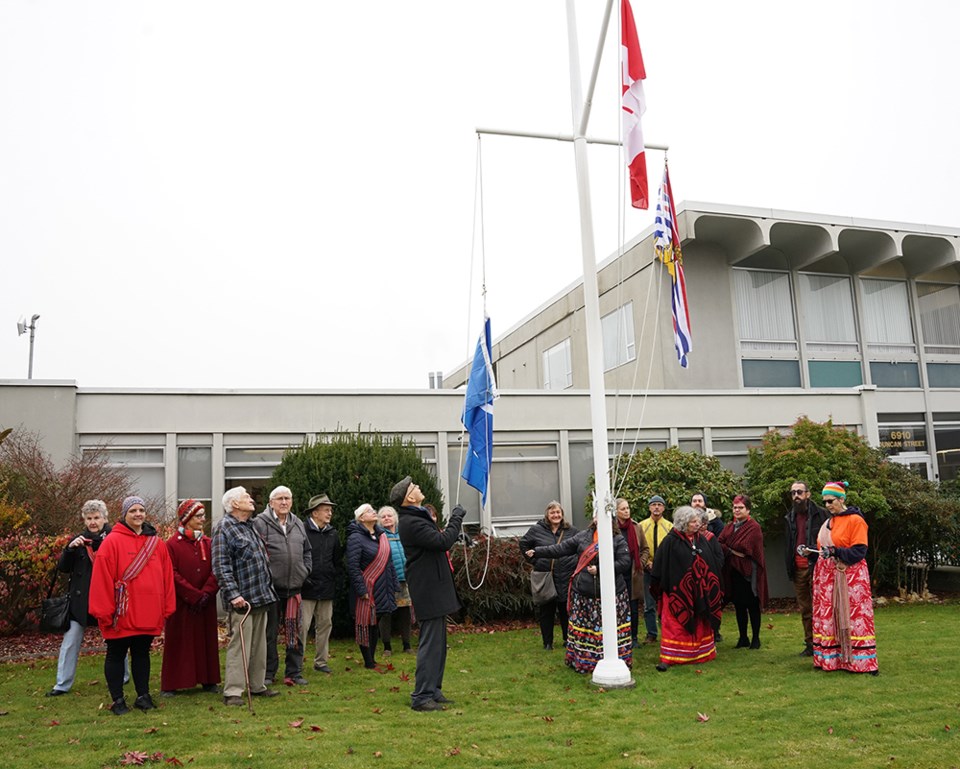Louis Riel was recognized in a ceremony and flag raising at Powell River City Hall on November 16 on the 137th anniversary of his death by hanging.
A statement was read at the flag raising by Nadeen Sierpina, a director with qathet Métis Nation Powell River, who said that on October 22, 1844, in St. Boniface of the Red River colony, Julie Lagimodiere gave birth to the eldest son of Louis Riel Sr.
Sierpina said that in 1858, at the age of 14, young Louis Riel was sent to Montreal to train for the priesthood.
“Unfortunately, in 1868, at the age of 24, he had to return to St. Boniface to support his recently widowed mom and siblings,” said Sierpina. “In January 1870, under Louis’ leadership, a convention of 40 representatives of the Red River settlement created a list of rights, which was built upon an inclusive vision for Manitoba. This valued bilingualism, multiculturalism, as well as Indigenous and minority rights.
“This list was a foundational document in establishing Manitoba as a province in Canadian Confederation through the Manitoba Act, which received royal assent on May 12, 1870.”
Sierpina said as both a Canadian politician and political leader of the Métis people, Riel advocated for guarantees for their land, languages and political rights. She said his leadership inspired the creation of Manitoba as Canada’s fifth province on July 15, 1870.
Sierpina said the northwest resistance, or northwest rebellion, was a violent, five-month insurgency against the Canadian government, fought mainly by Métis people and First Nation allies (Cree and Assiniboine), in what is now Saskatchewan and Alberta.
“It was created by rising fear and insecurity among the Métis and First Nations peoples, as well as the white settlers of the rapidly changing west,” said Sierpina. “A series of battles and other outbreaks of violence in 1885 left hundreds of people dead, but the resisters were eventually defeated by federal troops. The result was the permanent enforcement of Canadian law in the west, the subjugation of plains Indigenous peoples in Canada, and the conviction and hanging of Louis Riel.”
Sierpina said 137 years ago, on November 16, 1885, Riel was hanged for treason at the North-West Mounted Police barracks in Regina.
“We are gathered here today to celebrate the life of Louis Riel and give thanks for all that he did for our people,” said Sierpina. “Let’s raise our hands to our creator to give praise to everyone who was able to attend today, and to send blessings to those who could not.
“We give thanks to all who have helped prepare for our celebration. Remember that it is better to hold each other up rather than tear each other down.”



